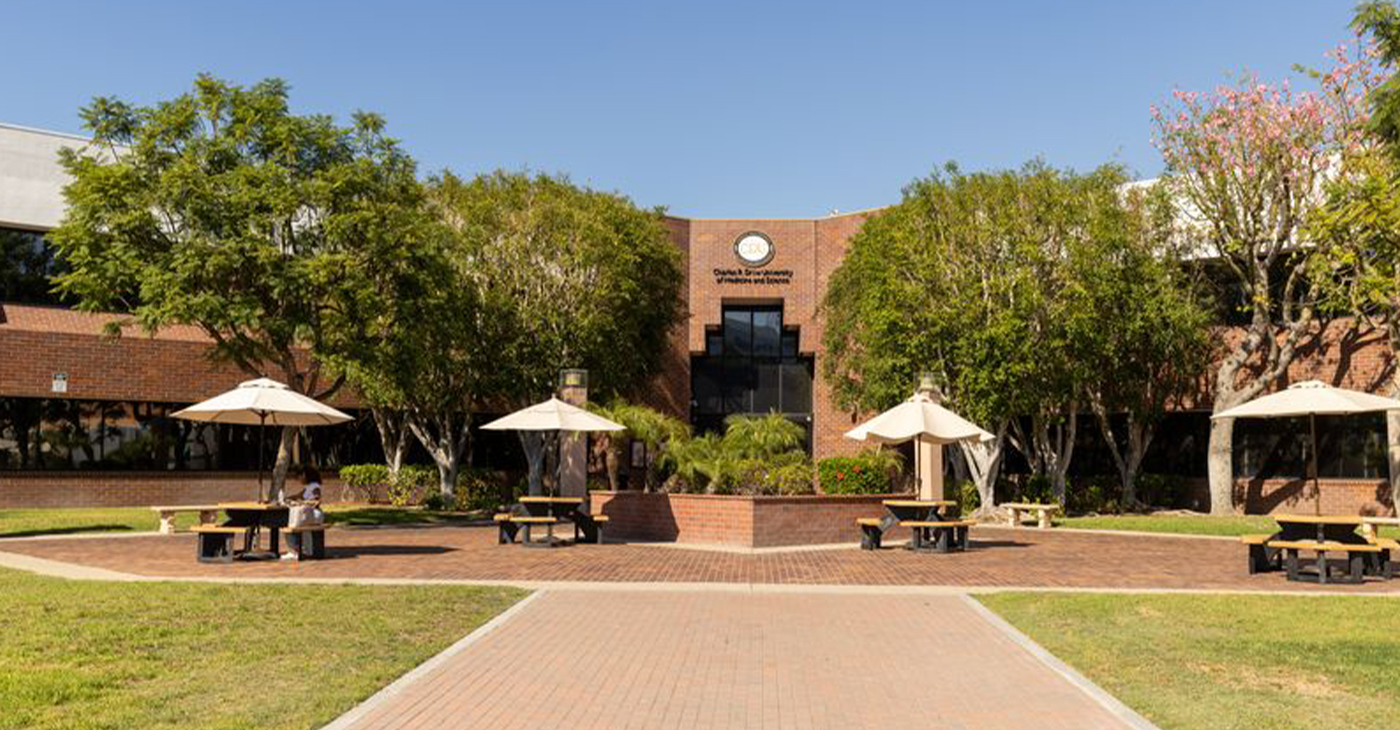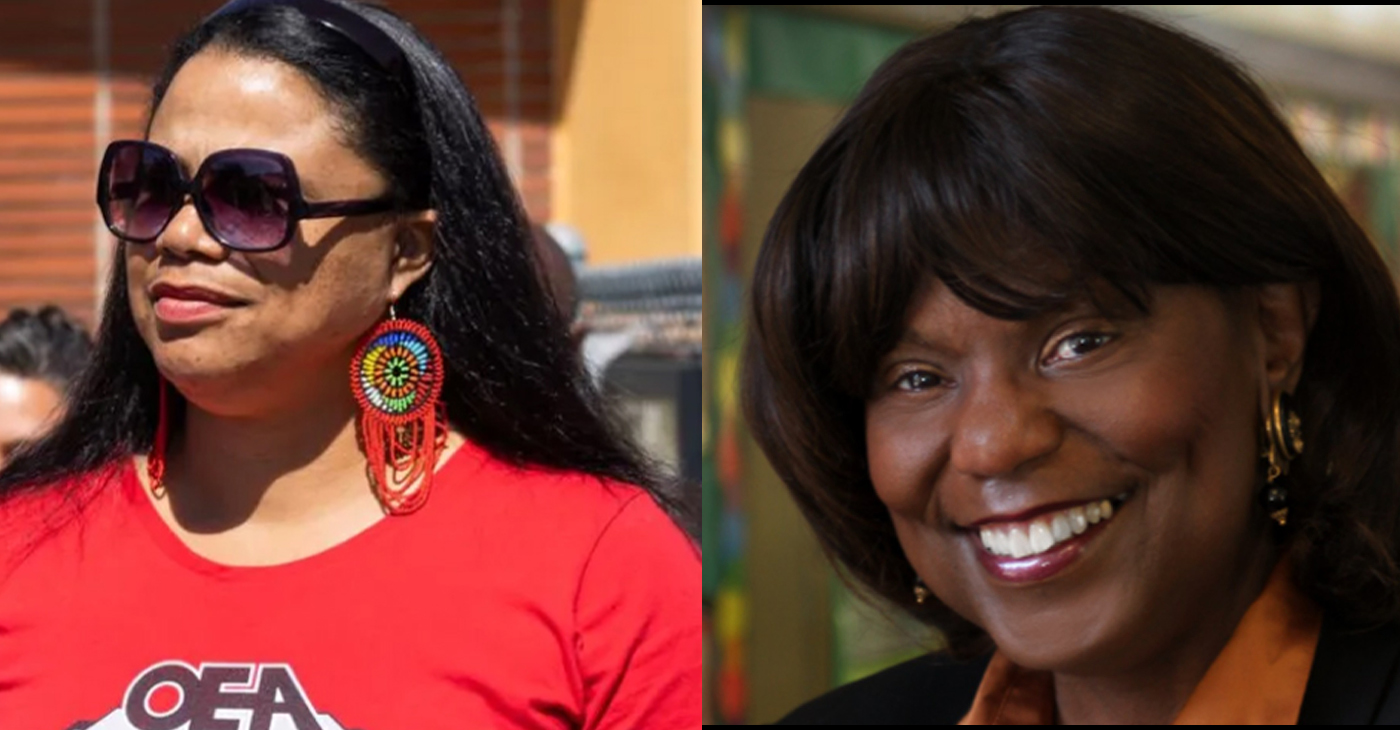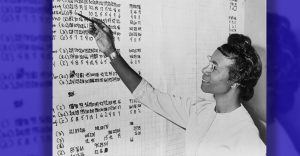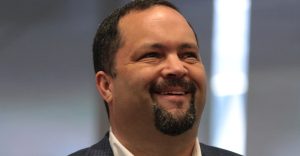Education
Opinion – Oaklanders Know What It Takes To Fight the Literacy Crisis

The world looks very different right now. From the COVID-19 pandemic and wildfires that have destroyed parts of the West Coast to growing social unrest, we’re facing a lot of uncertainties. But one thing has unfortunately stayed the same — the abysmal literacy rates for Black and Brown children in Oakland.
In the midst of fear, scarcity, and uncertainty, those who are the closest to the pain are often the most creative and resourceful. So, before the school year began, I asked myself, — what would happen if underserved communities had some slight relief? What would happen if we bet on our community and placed our faith in Oaklanders?
In September, my organization Energy Convertors, which focuses on building the agency of the end-users of public education, partnered with Educate78 to create a fund that builds on that bet.
The People’s Literacy Fund is a $100,000 initiative that will provide mini-grants between $500 – $5,000 to Oaklanders to improve literacy in our community. We want to lift up the voices of people from our community that are finding innovative ways to ensure more children are reading at grade level while offering some type of relief during a global pandemic. It is an opportunity for all of us to get a lesson in creativity and resilience while being a good neighbor during these challenging times.
The People’s Literacy Fund is very personal for me. When I moved to the Bay Area, I was 10 years old and had an uncertain future ahead of me. My family and I would eventually live in four shelters — two in Oakland and two in San Francisco.
My parents did the best that they could and even through rehab and jail stints, they were still able to raise a Black boy who never left the honor roll and would someday become a doctor, author, and entrepreneur.
Here’s the thing, though —no one ever asked how they did it. No one ever asked just how they made it work for me. What people miss is that Black and Brown families teach their kids to thrive academically despite all of the barriers we’re up against.
We are not blessing these families by offering relief through this money — they are blessing us with ingenuity, resilience, and a brilliance most people will never possess.
Again, the people of Oakland are our biggest asset.
Any person who is figuring out how to live in an ever-changing Oakland with red skies, insanely expensive rent, a crazy homeless problem, massive gentrification, and schools failing Black and Brown children while still teaching their kids how to read are true innovators that we can learn from.
Creating a more equitable public education system is more than just about funding. It’s about shifting our perspective on what and who we value.
I expect nothing less from the land of the Black Panthers.
Dr. Charles Cole, III is an educator focused on the advancement of youth of color, but more specifically Black males. The author of Beyond Grit and Resilience and founder of Energy Convertors, Cole is a national speaker and a writer. He is currently a board member of UCSF Benioff Children’s Hospital, and co-host of the 8 Black Hands Podcast.
Activism
How Charles R. Drew University Navigated More Than $20 Million in Fed Cuts – Still Prioritizing Students and Community Health
Named after the pioneering physician Dr. Charles R. Drew, famous for his work in blood preservation, CDU’s mission is to cultivate “diverse health professional leaders dedicated to social justice and health equity for underserved populations through education, research, clinical service, and, above all, community engagement.”

Charlene Muhammad | California Black Media

Earlier this year, when the federal government slashed more than $20 million in grants to Charles R. Drew University of Medicine and Science (CDU), the leadership of California’s only historically Black medical school scrambled to stabilize its finances — while protecting its staff and students.
Named after the pioneering physician Dr. Charles R. Drew, famous for his work in blood preservation, CDU’s mission is to cultivate “diverse health professional leaders dedicated to social justice and health equity for underserved populations through education, research, clinical service, and, above all, community engagement.”
The school is widely recognized as a vital pipeline for Black doctors and other health professionals throughout California.

Dr. David Carlisle (center), President of Charles R. Drew University of Medicine and Science (CDU), with two of the university’s students. Photo Courtesy of Charles R. Drew University of Medicine and Science.
Dr. Jose Torres-Ruiz, CDU’s Executive Vice President for Academic Affairs and Provost, said the university—designated as a Historically Black Graduate Institution (HBGI)—was notified in early March 2025 that most of its major grants, including the Research Centers in Minority Institutions (RCMI) award, known at CDU as the “Accelerating Excellence in Translational Science” (AXIS Grant), would be terminated. Initially renewed, the grant was later revoked because its language did not align with the current federal administration’s priorities.
The AXIS Grant provides $4.5 million per year for five years through the National Institutes of Health’s National Institute on Minority Health and Health Disparities. CDU quickly reallocated other funds to protect its scientists, staff, and technicians, though some personnel losses were unavoidable.
“We didn’t want to fire them because these people have expertise that takes years to gain,” Torres-Ruiz said.
The grant is crucial, he added, funding research in cancer, diabetes, and metabolic diseases that affect the Willowbrook community in South Los Angeles, training the next generation of scientists, and supporting community outreach.
Programs at the school, including its youth and teen mentoring programs reach beyond the walls of the university, impacting the lives and quality of health care of people in the surrounding community, one of the most underserved areas in Los Angeles County.
Confronted with the harsh reality of funding cuts, the university’s leadership made an early, strategic choice to honor its foundational commitment and prioritize its students. Dr. Deborah Prothrow-Stith, dean of CDU’s College of Medicine, highlighted the school’s deliberate focus on admitting students from economically disadvantaged backgrounds — many of whom are Pell Grant recipients and graduates of public high schools.
“We are staying true to our mission, finding creative ways to prioritize what’s most important,” she said. “I’m optimistic because of our students—they are dedicated and committed to service.”
In addition, the $2 million-per-year John Lewis NIMHD Research Endowment Program, intended to strengthen CDU’s research infrastructure, was terminated with three years remaining after a February 2025 freeze on nearly all federal grants for public health, education, and infrastructure projects.
Following an appeal, CDU learned in June that the RCMI grant had been fully reinstated, along with all but eight smaller grants. The university’s next priority is restoring the John Lewis Endowment.
“We are working with NIH staff to adjust the language. Certain words like ‘diversity’ and ‘equity,’ which are core values of our institution, are now under scrutiny,” Torres-Ruiz explained.
CDU has also expanded funding sources by targeting foundations and private donors. “This may happen again. We cannot rely solely on federal agencies,” Torres-Ruiz said, emphasizing the importance of building relationships with politicians and private partners.
Prothrow Stith echoed Ruiz’s perspective on cultivating multiple funding sources. “Building bridges with private foundations helps, but it doesn’t erase the disruption,” she said.
Many students rely on federal loans, CDU leaders say. Those loans are now capped at $150,000. So, most medical students graduate with $300,000–$350,000 in debt when accounting for tuition and living expenses.
To lower the burden on students, CDU is exploring options to make education more affordable, including overlapping school years to reduce annual costs.
Students like Isaiah Hoffman and Bailey Moore epitomize CDU’s values.
Hoffman, an aspiring orthopedic surgeon from Inglewood, credits Drew for inspiring his career choice. Out of 12 medical school acceptances, he chose CDU to give back to his community and continue Drew’s legacy. Hoffman also founded H.O.M.I.E.S. Inc., a nonprofit pairing Black K–12 students with mentors to support academic and personal growth.
Moore, 23, from Southeast Washington, D.C., pursued CDU to address maternal health disparities she observed in her own community – an underserved area of the nation’s capital city. “CDU pours into you. It emphasizes service, and I hope for a world without health disparities,” she said. “Drew may be small, but Drew is mighty. It was created out of necessity to save lives and empower communities.”
CDU President and CEO Dr. David Carlisle acknowledged during the Aug. 28 “State of the University” that the institution faces ongoing challenges. Political threats and grant disruptions contributed to a sizable unrestricted budget deficit, despite achievements over the past year.
Successful appeals and alternative sources of funding, led by Vice Provost Dr. Ali Andallibi, have now restored all the monies previously lost in research funding, he said.
Carlisle expressed gratitude to L.A. Care Health Plan and Sutter Health for providing multimillion-dollar scholarships and highlighted that CDU would welcome approximately 1,050 incoming students—near its highest enrollment ever. “I’m deeply grateful for the resolve, diligence, and unwavering commitment of everyone here, even when the path is not easy,” he said.
At the gathering, Carlisle referred to the sounds of ambulances passing by with blaring sirens as- the “music of healthcare,” while students and the school’s leadership attending expressed resilience in their speeches and conversations. The activities of the day captured the institution’s focus on education, service and advancing health care across disadvantaged communities in California – and beyond.
Video Report: How Charles Drew Stayed Strong Amid Federal Funding Cuts
Activism
Oakland School Board Proposes Budget Solutions to Avoid State or County Takeover
After 22 years, OUSD was finally released from state receivership in July. Facing a new deficit, the district is now urgently dealing with the threat of a new state or county takeover.

Teachers’ union calls for spending plan that prioritizes classrooms and student services
By Post Staff
Seeking to avoid the threat of a state or county takeover of the Oakland Unified School District, the Board of Education has adopted recommendations designed to provide guidelines to the superintendent and administration to resolve an ongoing budget deficit for this year and the next two years.
A resolution on budget guidance was approved at the Oct. 8 board meeting by board members Rachel Latta, Jennifer Brouhard, VanCedric Williams, and Valarie Bachelor. Voting ‘no’ were board members Mike Hutchinson, Patrice Berry, and Clifford Thompson.
After 22 years, OUSD was finally released from state receivership in July. Facing a new deficit, the district is now urgently dealing with the threat of a new state or county takeover.
The board resolution passed at the Oct. 8 board meeting directs Supt. Denise Saddler and her administration to implement a hiring freeze and review openings for new positions. Other possible savings include freezing or canceling consulting contracts, reducing travel expenses, and consolidating other purchases.
Whatever the district decides, none of the possibilities will include school closures or mergers, according to the board resolution.
District staff is expected to come back in November with budget proposals for the 2026-27 school year, including restructuring the central office, reducing administrative positions, and cutting spending on consulting contracts, as well as ways to increase enrollment.
Speaking at the board meeting, Saddler said, “What I need from all of you is to hear what the parameters are of what you would like staff to look at so we can do our best work to bring you options.”
“I want to respect that every single one of you has been doing some thinking about this and writing about it and have amendments and proposals,” she continued. “I urge you to give us the outside of the puzzle so we can go forth and do our best work.”
In an interview with the Oakland Post, Williams explained that a new board was elected last November and started in January. The board approved cuts in March of over $100 million to exit state receivership. And additional cuts of $60-$80 million are requested for 2026-2027, “which means up to $180 million within a year cycle, about 20% of the annual budget, raising the risk of returning to state receivership,” he said.
According to Williams the district carried high deficits with layoffs in 2020-21, 2021-22, and 2022-23, and prior boards “kicked the can down the road” rather than dealing with the deficits.
Past board presidents Sam Davis, Mike Hutchinson, Gary Yee, and Shanthi Gonzales “did not address the problems, leaving the current board to solve them,” he said.
Further, Willliams said, Alameda County Supt. of Schools Alysse Castro and the state agency, Fiscal Crisis Management and Assistance Team (FCMAT) “gave qualified budget approvals for four years. They could have (halted) raises or spending but did not, expecting eventual cuts without mandating immediate reductions.”
As a result, he said the “board needs to make major budget decisions this year within the next few weeks due to a looming fiscal cliff and threat of state receivership.”
“Reductions cannot come solely from central office or consultants,” Williams said. “Everything is on the table, including afterschool (programs), special education, and school restructuring.”
In a statement to the community, OUSD Chief Budget Officer Lisa Grant-Dawson wrote, “The district must develop a plan to restore its reserves as we navigate through the 2025-26 budget and prepare for the 2026-27 Budget Development process. The district will present its first Interim Report in December, reflecting its revised projections for the budget and reserves, which will then be reviewed by the County.
“As we have been saying since early in the 2024-25 school year, the District is currently deficit-spending about $4 million per month, that is, spending $4 million more every month than it’s receiving in revenues. The more we do that moving forward, the more we diminish our reserves, until, eventually, we run out of money.”
“As a school district where the mission is educating children, we cannot run out of money, and the State and County won’t let that happen,” she said. “But we need to prevent it from getting to that point in the first place. The district will need to make some very difficult choices in the near future to remain financially solvent.”
According to the Oakland Education Association (OEA), the teachers’ union, which is currently negotiating with the district for a new contract, the district traditionally distorts its budget, minimizing its revenue and maximizing its expenses to avoid increasing employee wages.
In a presentation to teachers and families, OEA President Kampala Taiz-Rancifer said, “The City of Oakland has a long history of standing up for the most marginalized in our community. And we need OUSD to stand up and be a part of protecting Oakland students by really investing in our school sites.”
Continuing, she said, “Our main job in this district is to teach children, and we need OUSD to change its priorities from (spending its money) outsourcing, contracting out, and investing in top-level management to really providing a student-centered budget.”
“The district has spent too much on the wrong things, too much on outside contracting and on central office administration while also simultaneously having this history of under-projecting revenue,” she said.
“We have a vision for a student-centered budget that invests in our school,” Rancifer said. “We need to restructure the budget to prioritize students and staff, making a student-centered budget that invests in classrooms and student services.”
According to OEA, “OUSD receives nearly $1 billion yearly to fund our schools — yet only 56% of that goes to student-facing staff. Our students feel the daily impact through high teacher- and support staff- turnover. Districts like San Diego Unified prove it’s possible to do better, investing 80% of funds directly into the people who serve students.”
Activism
California Teachers Association Rallies Behind Prop. 50: A Stand for Education and Democracy
“The dysfunction we’re witnessing in Washington, D.C. has profound implications for our schools,” Jones explained. She emphasized that the dismantling of the federal Department of Education and the curtailing of union rights for workers are issues that inevitably trickle down to affect the students in California classrooms. “This is not a fight we chose, but it’s one we must engage in for the future of our children.”

SACRAMENTO — In a bold move reflecting the urgency of the times, the California Teachers Association (CTA) has thrown its weight behind Proposition 50, an initiative spearheaded by Governor Gavin Newsom aimed at redistricting. CTA is reaching out to California’s Black voters by activating a campaign utilizing some of the state’s legacy Black newspapers.
Prop. 50 presents an opportunity for California voters to pause and reconsider the current legislative maps that dictate representation — a reaction to a national landscape where education and voting rights are increasingly under threat. Erika Jones, the Secretary/Treasurer of the CTA pointed out that the initiative serves as a direct counter to troubling developments in states like Texas, where the political climate has grown hostile towards both educational funding and voter inclusion.
“The dysfunction we’re witnessing in Washington, D.C. has profound implications for our schools,” Jones explained. She emphasized that the dismantling of the federal Department of Education and the curtailing of union rights for workers are issues that inevitably trickle down to affect the students in California classrooms. “This is not a fight we chose, but it’s one we must engage in for the future of our children.”
Critics from within the Democratic spectrum have voiced skepticism about the ethics of using Prop. 50 as a tool against what they perceive as unethical actions from other states. However, Jones argues convincingly that the current political climate itself — marked by a wave of voter suppression tactics and the sidelining of marginalized communities — constitutes an ethical crisis that demands a robust and proactive response.
“We have to take a stand,” Jones insists. She draws parallels between the present situation and historical struggles for voting rights, reflecting on her own family’s involvement in civil rights movements. “If we don’t act now, we risk losing decades of progress.” She voiced concerns that without intervention, there could be dire consequences for marginalized students, including cuts to funding that directly supports vulnerable populations.
With more than $15 billion in federal assistance hanging in the balance, the stakes could not be higher. Jones highlighted the importance of rallying both educators and community members to mobilize against what she describes as an “unethical assault” on democracy. “We cannot simply remain isolated in California; the fight for justice and equity reverberates across the entire nation.”
As supporters of Prop. 50 intensify their outreach, Jones invites California residents to join the movement. “We’re encouraging everyone to get involved — whether by volunteering to canvas or by spreading awareness through social media.” Those interested can visit cta.org/prop50 for more information on how to engage in meaningful activism.
With only a few weeks left to vote, the CTA’s call for action resonates across communities, urging Californians to recognize not just their rights as voters, but their responsibility to advocate for the future of education in a rapidly changing political landscape. As Jones aptly puts it, “This is our fight, and we must be heard.”
-

 Activism4 weeks ago
Activism4 weeks agoOakland Post: Week of November 12 – 18, 2025
-

 Activism3 weeks ago
Activism3 weeks agoIN MEMORIAM: William ‘Bill’ Patterson, 94
-

 Activism4 weeks ago
Activism4 weeks agoHow Charles R. Drew University Navigated More Than $20 Million in Fed Cuts – Still Prioritizing Students and Community Health
-

 Bay Area4 weeks ago
Bay Area4 weeks agoNo Justice in the Justice System
-

 #NNPA BlackPress3 weeks ago
#NNPA BlackPress3 weeks agoLewis Hamilton set to start LAST in Saturday Night’s Las Vegas Grand Prix
-

 #NNPA BlackPress3 weeks ago
#NNPA BlackPress3 weeks agoBeyoncé and Jay-Z make rare public appearance with Lewis Hamilton at Las Vegas Grand Prix
-

 Activism3 weeks ago
Activism3 weeks agoOakland Post: Week of November 19 – 25, 2025
-

 #NNPA BlackPress4 weeks ago
#NNPA BlackPress4 weeks agoThe Perfumed Hand of Hypocrisy: Trump Hosted Former Terror Suspect While America Condemns a Muslim Mayor













































